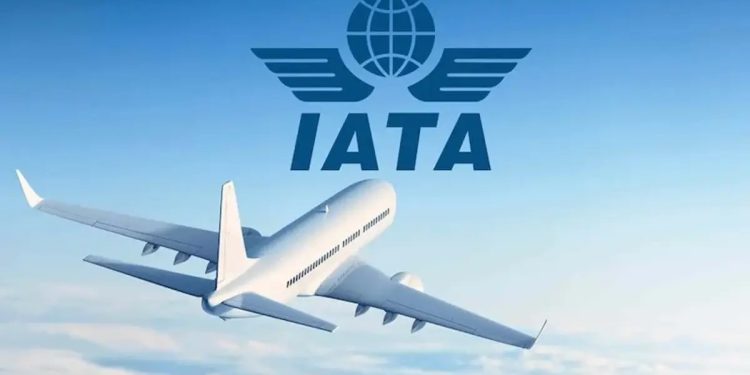Foreign airlines operating in Nigeria faced significant challenges in 2022 due to foreign exchange constraints, yet managed to generate approximately $1.1 billion in revenue, as reported by The PUNCH. Bankole Bernard, Chairman of the Airlines and Passengers Joint Committee of the International Air Transport Association, highlighted the thriving demand for travel within the country and expressed confidence in the sustainability of these figures in the near future.
However, the issue of trapped funds continues to plague the industry. The Senate recently passed a resolution urging the Central Bank of Nigeria (CBN) to release $717,478,606 of airline funds stuck in the country and allocate $25 million to airlines through its dollar auction. Despite these calls, Bernard expressed doubts about the Senate’s ability to influence the CBN, citing the central bank’s disregard for legal compliance in the past.
Bernard emphasized that airlines cannot simply withdraw their services as they have invested in aircraft for the Nigerian market. He noted that foreign airlines still perceive Nigeria as a viable market despite the challenges. However, the inability to access their funds has led to airlines either ceasing operations or reducing flight frequencies. Some airlines have resorted to selling tickets in dollars, with conversion rates reaching as high as 640 naira to the dollar.
Kingsley Nwokoma, spokesperson for foreign airlines in Nigeria, emphasized the urgent need for the repatriation of funds. Failure to do so may force airlines to reconsider their operations in the country, impacting profitability and willingness to continue operating. Nwokoma warned that if the government does not take immediate action, more airlines will leave Nigeria.
While the Senate’s order may provide a glimmer of hope, Nwokoma expressed skepticism about the CBN’s willingness to disburse the funds promptly. Given the airlines’ long-standing struggle to access their funds, delays in repatriation have already led to consequences such as airlines leaving the country. The future of the industry relies heavily on the government’s swift action to address this pressing issue.
Despite foreign exchange challenges, foreign airlines operating in Nigeria managed to generate a staggering $1.1 billion in revenue in 2022. This substantial figure highlights the thriving demand for travel within the country. In this blog post, we will delve into the implications of this significant revenue generation for both the aviation industry and Nigeria’s economy.
Boost to the Aviation Industry
The $1.1 billion revenue generated by foreign airlines in Nigeria showcases the resilience of the aviation sector. Despite the challenges posed by foreign exchange constraints, the industry has managed to attract passengers and maintain a steady flow of revenue. This underscores the importance of air travel for business, tourism, and economic activities within the country.
Economic Contribution
The revenue generated by foreign airlines has a positive impact on Nigeria’s economy. It contributes to foreign exchange earnings, supports local businesses dependent on tourism, and creates job opportunities in various sectors. The influx of travelers stimulates economic growth, as tourists spend money on accommodation, transportation, dining, and shopping, among other activities. This revenue flow has a ripple effect, benefiting a wide range of industries and contributing to overall economic development.
Market Viability and Confidence
The fact that foreign airlines continue to operate in Nigeria and generate substantial revenue demonstrates the market’s viability and attractiveness. Despite the challenges faced, airlines recognize the potential for growth and profitability within the country. This boosts confidence in Nigeria as a destination for international flights, encourages competition, and fosters improvements in services and infrastructure.
Trapped Funds Challenge
However, it is crucial to address the issue of trapped funds that foreign airlines face in Nigeria. The inability to repatriate their earnings creates significant challenges for airlines’ operations, profitability, and long-term commitment to the market. Some airlines have already been forced to reduce flight frequencies or even cease operations. The Senate’s resolution urging the Central Bank of Nigeria (CBN) to release the trapped funds is a step in the right direction, but prompt action is needed to prevent further adverse consequences.
Government Intervention and Stability
The repatriation of funds will require effective collaboration between the Nigerian government, the CBN, and foreign airlines. Swift resolution of this issue will not only restore confidence in the market but also ensure that Nigeria remains an attractive destination for foreign investment. Addressing foreign exchange challenges and providing a stable economic environment will encourage continued growth and stimulate further revenue generation within the aviation sector.
Conclusion
The $1.1 billion revenue generated by foreign airlines in Nigeria is a testament to the country’s potential as a thriving market for air travel. It brings economic benefits, job opportunities, and contributes to the overall development of various sectors. However, the challenge of trapped funds must be resolved promptly to ensure the sustainability of the aviation industry and maintain Nigeria’s status as an attractive destination for international airlines. By addressing these issues, Nigeria can foster a conducive environment for airlines, passengers, and the overall growth of the economy.









